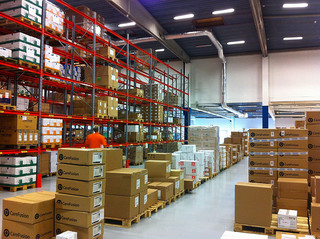Study Finds That There is No Correlation Between Expenditure With a Supplier and Its Cost of Impact Upon Supply Disruption

Until now, companies and their executives have operated under the assumption that those suppliers with which they spend the most money are those which would impact their business the most if the supplies were disrupted. However, a new study conducted by MIT found no correlation between how much a company spends with any given supplier and how much that supplier’s inability to deliver supplies affected the company’s business. The new calculations were used to test Ford Motor Company’s supply chain. The results of the study are to be published in the January-February edition of The Harvard Review.This article is for Premium Members only. Please login below to read the rest of this article.
Not a Premium Member yet? Become one today.
[login_form redirect=’https://www.procurementbulletin.com/study-finds-that-there-is-no-correlation-between-expenditure-with-a-supplier-and-its-cost-of-impact-upon-supply-disruption’]
[show_to accesslevel=’Premium Members’]
In the study, suppliers to Ford that supplied high dollar items such as automotive car seats actually impacted the business’ ability to deliver on time products relatively little when they were unable to deliver for a short period of time. This is largely due to the inventory kept on hand by Ford. Conversely, low ticket items such as small parts had a high impact on Ford’s bottom line, largely because those seemingly inconsequential parts are needed for a large number of vehicles across product lines.
The conclusion of the study is that companies should be more focused on how much they depend on any given supplier, and what the chances of a disruption in that supplier’s ability to deliver actually are. This moves the focus away from assessing the impact of disruptions in other areas of the supply chain.
According to Hau Lee, professor of operations, information, and technology at Stanford University’s Graduate School of Business, “The ability to manage and respond to supply chain disruptions is becoming one of the critical success factors of executives. Addressing low-probability disruptions has often been viewed as black magic, as standard quantitative methods simply do not work. The authors have come up with an innovative, structured approach, so that executives could use a rational decision process to gain control of this problem.” Lee was not involved in the MIT study. [/show_to]








